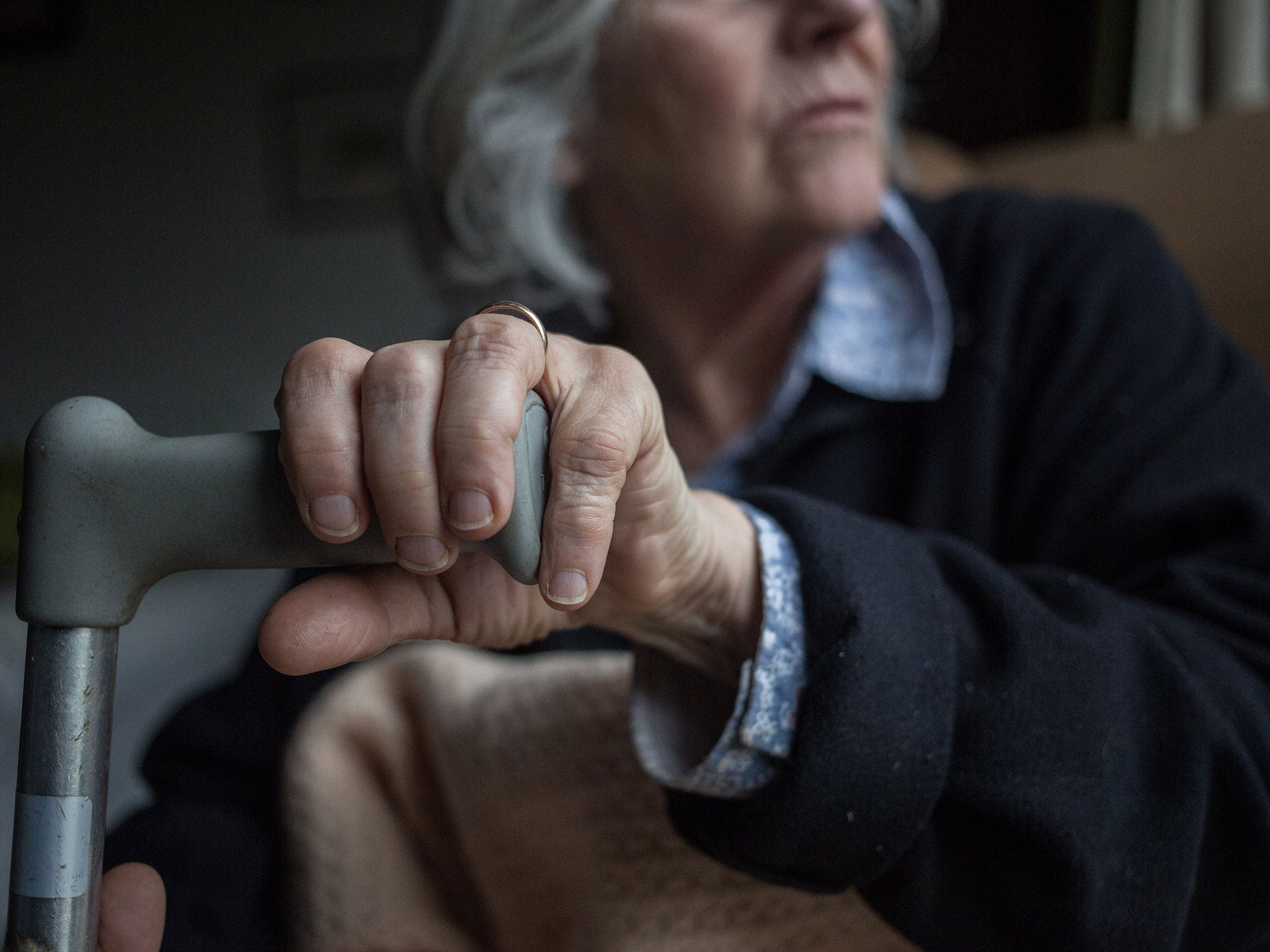Care home residents dressed in each other’s clothes and living in ‘dirty’ conditions, finds watchdog
Too many care homes are under so much pressure they are not 'getting the basics right every time', warns Healthwatch England

Your support helps us to tell the story
From reproductive rights to climate change to Big Tech, The Independent is on the ground when the story is developing. Whether it's investigating the financials of Elon Musk's pro-Trump PAC or producing our latest documentary, 'The A Word', which shines a light on the American women fighting for reproductive rights, we know how important it is to parse out the facts from the messaging.
At such a critical moment in US history, we need reporters on the ground. Your donation allows us to keep sending journalists to speak to both sides of the story.
The Independent is trusted by Americans across the entire political spectrum. And unlike many other quality news outlets, we choose not to lock Americans out of our reporting and analysis with paywalls. We believe quality journalism should be available to everyone, paid for by those who can afford it.
Your support makes all the difference.Elderly people are being dressed in each other's clothes and living among dead plants and rotting window sills, according to a damning report on care homes across England.
Too many care homes are under so much pressure that they are not “getting the basics right every time”, care consumer watchdog Healthwatch England warned, following visits to 197 care homes between January 2016 and April this year.
The report states that some residents were cared for by rushed staff and were having to put up with things like dead plants, rotting window sills, peeling wallpaper and being put in someone else's clothes.
In 11 care homes, the watchdog had to recommend an immediate "deep clean" after relatives reported their loved ones living in "dirty" conditions.
One resident told the consumer watchdog call bells for assistance to go to the toilet could go unanswered for an hour, while another reported that laundry was not always returned and was “worn by others”.
Care residents also said there were few activities offered to them, with one reporting that the options were “television or television”. Residents in many of the homes were found to have no access to the internet, restricting their options for staying in touch with family and friends.
Concerns were also highlighted over health needs, with residents facing “barriers” when trying to access care from a GP.
The authors of the report warned “too few homes are getting the basics right every time”, and urged that while homes were under financial pressure, clearing away dead plants or ensuring that laundry goes back to the right person "need not cost a lot of money".
"Such examples do not suggest a culture where care is taken to make residents feel truly at home. The best care homes recognise they are people's homes," the report states.
Imelda Redmond, national director of Healthwatch England, echoed their message, saying: ”It's not easy running a care home, particularly as the sector as a whole is trying to get to grips with the dual challenge of managing rising demand with limited resources.
“But getting the basics right doesn't have to cost the earth and should be the least we should all be able to expect for our loved ones and ourselves should we need care support.”
Earlier this year, it emerged that nearly half of care workers leave the job within 12 months, while the annual turnover rate for nurses working in social care stands at 36 per cent – meaning the sector is having to replace more than a third of nurses each year.
A report by charity Age UK revealed last month that thousands of care home residents were being wrongly charged fees of up to £100 a week in what has been branded a “stealth tax” on elderly people and their families.
Commenting on the latest report, Izzi Seccombe, chairwoman of the Local Government Association's Community Wellbeing Board, said: “This study is yet another reminder of the stark reality of the funding crisis facing adult social care, and the urgent need to bring desperately needed stability to the provider market.
"While the £2 billion announced in the Spring Budget for social care was a step in the right direction, it is only one-off funding and social care services still face an annual £2.3 billion funding gap by 2020."
It comes amid growing concerns over social care provision in the UK, which is seeing care homes struggle to meet the increasing demand for care as many of their workers leave due to the strains of the job.
Join our commenting forum
Join thought-provoking conversations, follow other Independent readers and see their replies
Comments